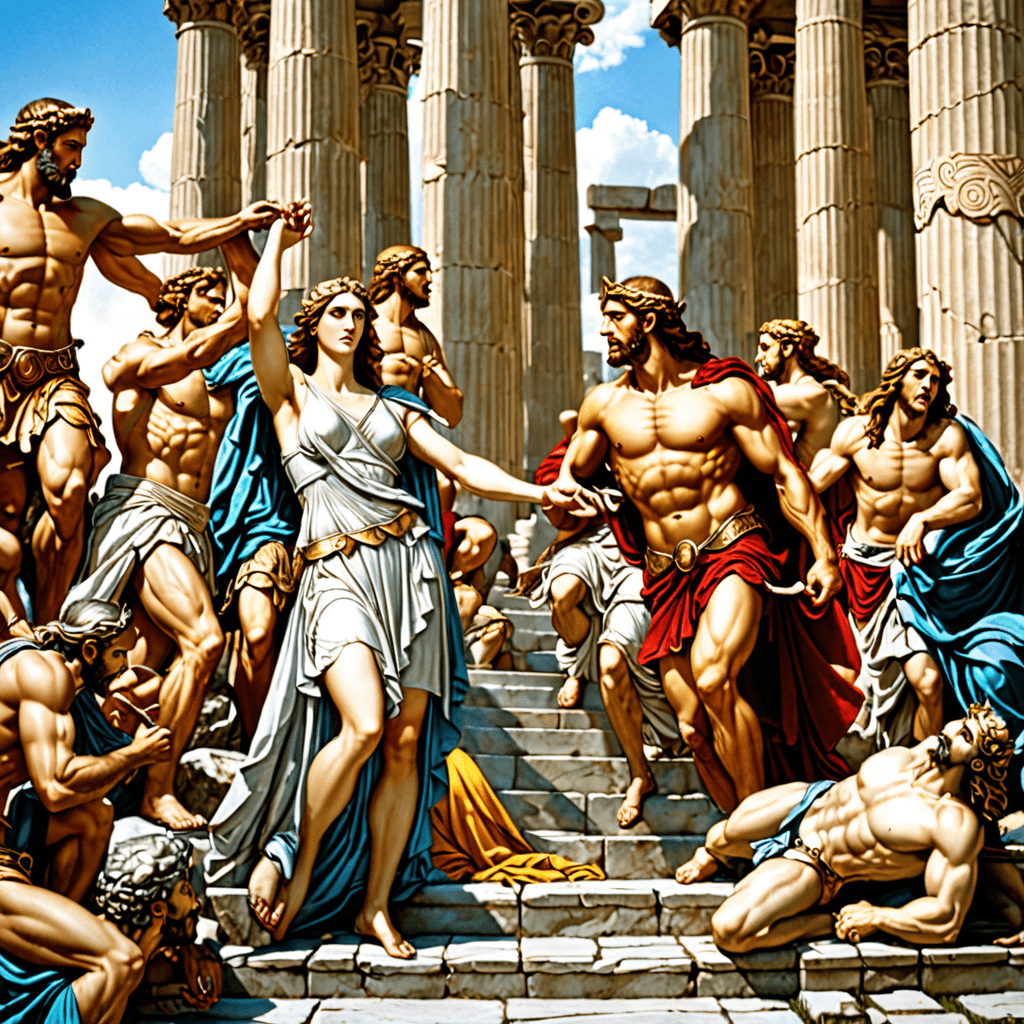From Ashes to Life: The Transformative Power of Mythic Narratives
I. Introduction
Mythic narratives are stories that contain profound truths and insights about the human experience, often transcending time and culture. They are not mere fables or fairy tales; rather, they serve as deep reflections of our collective psyche and societal values.
Historically, myths have played a crucial role in shaping civilizations, serving as a means to explain the unexplainable, to impart moral lessons, and to provide comfort and hope in times of uncertainty. This article aims to explore the transformative power of these narratives, illustrating how they can ignite change, foster personal growth, and contribute to collective healing.
II. The Nature of Mythic Narratives
Mythic narratives are characterized by several key features:
- Symbolism: Myths are rich in symbols that convey complex ideas and emotions.
- Timelessness: They often address universal themes that resonate across generations.
- Archetypes: Common archetypes emerge, such as the hero, the mentor, and the trickster.
Across cultures, several themes frequently appear in mythic narratives, including creation, destruction, love, and sacrifice. The role of archetypes in storytelling cannot be overstated; they serve as templates for characters and plots, allowing audiences to connect deeply with the narrative.
III. Myths as Tools for Transformation
Mythic stories have a profound psychological impact, serving as mirrors reflecting our innermost struggles and aspirations.
A. Psychological impact of mythic stories
- Exploration of identity: Myths allow individuals to explore their identities, helping them understand their place in the world.
- Coping mechanisms in times of crisis: They provide frameworks for navigating difficult emotions and situations.
Additionally, myths can facilitate personal growth and self-discovery. Many individuals have found inspiration and solace in mythic tales, leading to transformative life changes.
For example, stories like that of Odysseus in Greek mythology illustrate resilience and the quest for home, resonating with those navigating their struggles.
IV. Cultural Context and Collective Healing
Myths often reflect the values and beliefs of the societies from which they originate. They serve not only as entertainment but also as vehicles for cultural identity.
A. Myths as a reflection of societal values
By examining myths, we can gain insights into what a culture values and fears. They often encapsulate collective experiences and serve as touchstones for community bonding.
B. Healing narratives in indigenous cultures
Many indigenous cultures utilize mythic narratives as a means of healing, incorporating storytelling in rituals that promote recovery and connection to the past.
V. The Resilience of Mythic Narratives in Modern Society
Despite the passage of time, mythic narratives continue to resonate in contemporary society.
A. Adaptation of ancient myths in contemporary media
Today, we see the adaptation of ancient myths in various forms of media, including:
- Film
- Literature
- Digital storytelling
B. The resurgence of mythic narratives in popular culture
Modern interpretations of mythic stories allow new generations to engage with these timeless themes, ensuring their relevance.
C. Impact on mental health and well-being
As people grapple with mental health challenges, mythic narratives often emerge as sources of comfort and guidance, providing frameworks for understanding personal struggles.
VI. Myths and the Journey Through Grief
Mythic stories play a significant role in the grieving process, offering narratives that help individuals navigate loss.
A. The process of grieving through mythic stories
Through these narratives, individuals can find solace and understanding, creating a pathway to healing.
B. Examples of myths that address loss and rebirth
Myths such as the tale of Persephone illustrate themes of loss, renewal, and the cyclical nature of life.
C. Therapeutic applications of myth in grief counseling
Therapists often incorporate mythic narratives into grief counseling, helping clients articulate their feelings and find meaning in their loss.
VII. Transformative Myths Across Different Cultures
Examination of transformative myths reveals the universal truths they embody.
A. Comparative analysis of transformative myths
- Greek mythology: The story of Persephone portrays the duality of life and death.
- Hindu mythology: The cycle of rebirth emphasizes transformation and continuity.
- Native American myths: Creation stories often highlight the interconnectedness of all living things.
B. Lessons learned from diverse cultural narratives
These narratives provide valuable lessons about resilience, interconnectedness, and the human experience.
VIII. The Role of Myth in Social Change
Myths have historically inspired movements and revolutions, serving as catalysts for social change.
A. Myths that inspire movements and revolutions
Stories of heroes fighting against oppression resonate with those seeking justice and equality.
B. The power of storytelling in activism
Storytelling can unite people around a common cause, fostering solidarity and action.
C. Case studies of myths that paved the way for change
Examples include the myth of Prometheus, symbolizing defiance against tyranny, and its influence on modern social movements.
IX. Crafting Your Own Myth: Personal Storytelling
Creating personal myths can empower individuals to shape their narratives and find meaning in their experiences.
A. The importance of personal myth-making
Personal myths help in constructing identity and understanding life’s challenges.
B. Techniques for creating transformative narratives
Consider the following techniques:
- Journaling your experiences
- Exploring archetypes that resonate with your story
- Sharing your story with others
C. Sharing stories as a means of connection and healing
By sharing our stories, we create bonds with others, fostering community and understanding.
X. Conclusion
In summary, mythic narratives possess a transformative power that can guide individuals and societies through change, grief, and growth. Their enduring relevance is a testament to their ability to resonate with our innermost experiences and aspirations. As we embrace these stories, we find connection, healing, and the potential for profound transformation.




